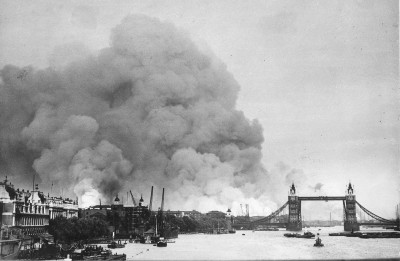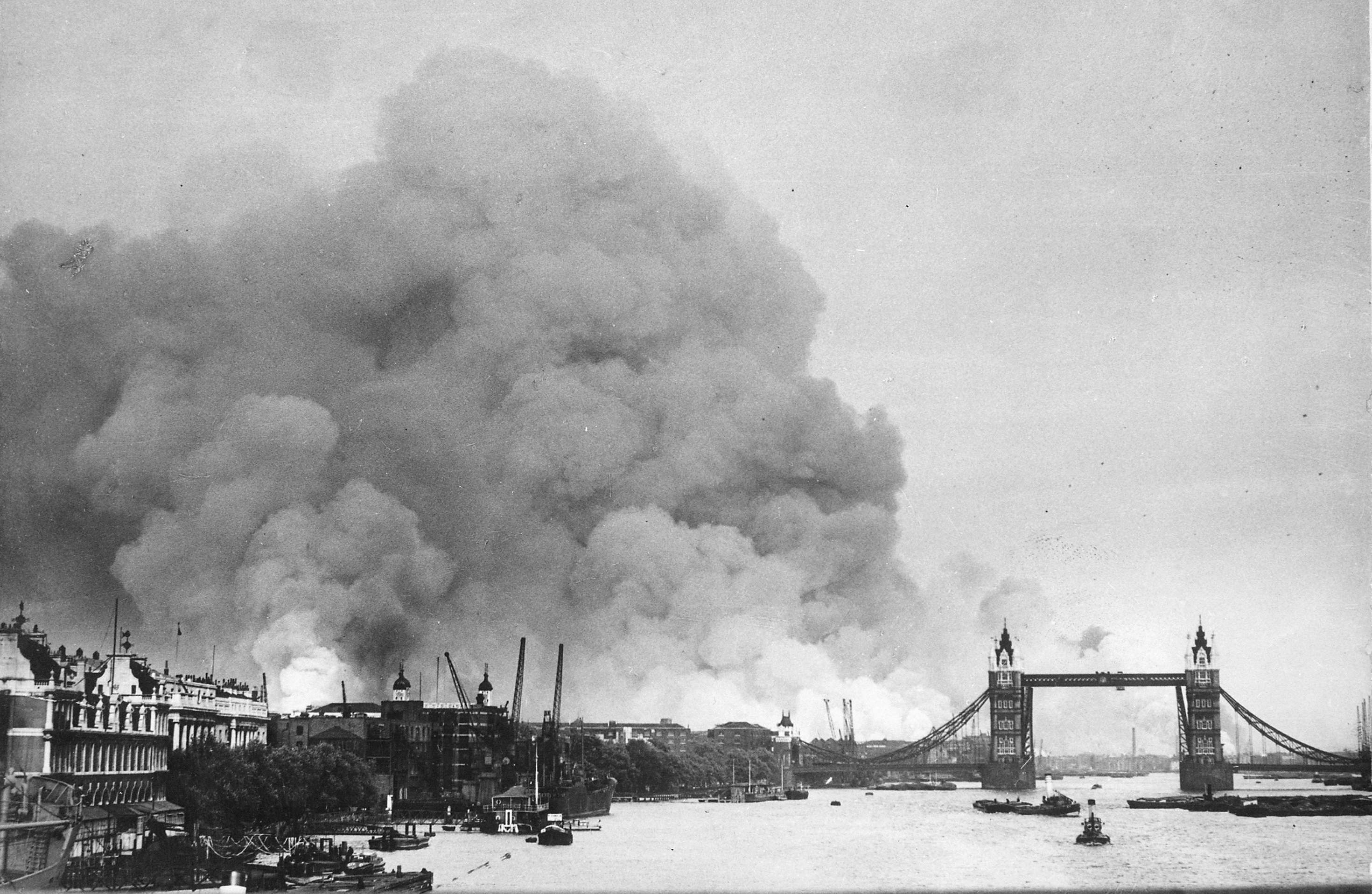
Seventy years ago, on April 15, 1945, the British Army liberated the Bergen-Belsen concentration camp and its 60,000 mostly Jewish, starved, and diseased prisoners. Among these prisoners was my maternal grandmother – who had survived several deportations, from Kovno (Kaunas) to Vaivara to Bergen-Belsen – and had lost her first child, first husband, and most of her family to the Nazi onslaught. Though privations continued, the British eventually provided medical and food assistance to the majority of the prisoners – and for my grandmother, help in reaching her surviving family in South Africa.
My family has not forgotten Britain’s role in liberating Holocaust survivors, in defeating Nazi Germany, and the revelation of and search for (ever incomplete) justice for the crimes of the Holocaust. Nor, as it happens, has British Jewry. Nor, however, have we forgotten Chamberlain’s appeasement–or the general lack of action by the British government against Nazi Germany in its early aggressions. Nor has British Jewry. In some ways, this conflict–of safe harbor but anger at inaction–is reminiscent of American Jewry’s attitude towards the United States’ role during the Holocaust.
Beyond the similarities, however, honoring the Holocaust in Britain takes on a different tone than in America: it feels weightier, is made more present, than in the States. This is an aspect I appreciate. Part of this difference comes from a very obvious geographical fact: the southeast of Britain is only a few dozen miles from countries occupied by the Nazis. Though perhaps militarily unlikely, the very real worry of “what if they had won” or “what if they had gone farther” permeates much of the discourse about the Holocaust here. So the gratitude to the British armed forces is huge – in many ways, they also saved British Jewry. Risk and patriotism combine to create a meaningful and very present commemoration.
Not only is there a sense of being on the “edge,” but also a stated sense of loyalty to the British state. Britain fought the Nazis, sent the soldiers that liberated the camps, and offered protection to the resident Jews who were British subjects and citizens. Despite the failings of the state in protecting or saving Jews, there is an idea that the state and its army–and its monarchy–offered a shelter to Jews, and has been their strongest ally. Today, this is made manifest by the presence of a prayer for “those who fought against Nazism” and the fallen of the British armed forces at many Yizkor services. In the United States, many chat during synagogue prayers for the country, but in the United Kingdom, every congregation I have been to stands at rapt attention for the Prayer for the Royal Family. The sense of honour – and by extent, patriotism – is very real.
Non-Jewish Brits, by my estimation, are also more invested in Holocaust commemoration than their American counterparts. That is not to say that our fellow non-Jewish Americans are not invested. But I think that the strains the war put Britain under–the bombings of The Blitz, the rations, the privations, the thousands of dead soldiers–make the memory of World War II much more tangible in the British popular imagination. Commemoration for the conflict is still taken very seriously in the United Kingdom, and commemoration for the Holocaust is rolled into that. I have been surprised by the amount my British friends and acquaintances know about the Holocaust and the extent to which it is present in the popular imagination here. The crimes of Auschwitz and Treblinka are still a call to action for many of the youth on the British Left today, and British media regularly commemorates the survivors and the righteous folk who saved them. I wonder sometimes if the patriotism I see among British Jews is a reaction to this idea.
Yet the general inaction of the mainstream British community during World War II is hushed. It is easy to remember the Holocaust in Britain, but it is not so easy to mark the anti-Semitism refugees fleeing the Nazi onslaught faced from government and mainstream society alike, a topic George Orwell eloquently described in his 1945 essay, “Antisemitism in Britain.” Nor is it easy to face up to either the appeasement of Neville Chamberlain or the widespread fascist movement of Oswald Mosley. This is perhaps even harder today, as many Brits turn again to the same fanatical, fascistic nationalism of Mosley’s movement. Yet I also wonder if this hushing serves a double effect: Firstly, it makes it easier for British Jews–including myself–to honor what this country did do for Jews, because in fact it is a lot. Things are complicated in life, and inaction does not undo benevolent action. Secondly, as I just noted, World War II had such a profound effect on British society that, more widely, it is difficult for many to reconcile this complex history with what happened during and after the war. Of course, in commemorating the Shoah, these things must be confronted as well – since they, too mediate British Jewish perceptions of the state. After all, these points are brought up by many more right-wing British Jews, especially in regard to Israel.
One wonders how British Jews would interact with the state if the Shoah had never happened–if Kovno and Salonica still spoke Yiddish and Ladino. As someone who studies British Imperial and Commonwealth history, I think the long-standing loyalty of the mainstream Jewish establishment to the British state–already present in the late 19th century–would mean that yes, British Jews would still be quite patriotic and grateful to the state. Yet it is the very real history of World War II and the Holocaust that inform the honor we see from most of the community today.
Jonathan P. Katz is an American student studying at Oxford University.

